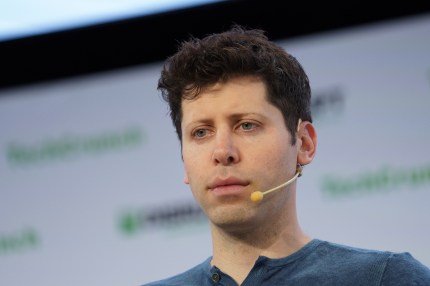Ask any of the health-focused VCs to name one of the top AI startups and one name comes up over and over again: a company based in Pittsburgh called Abridge. And it’s a startup that launched before OpenAI was a household name and large language models (LLMs) entered the common Valley vocabulary.
In 2019, Shiv Rao, a practicing cardiologist, pitched Andy Weissman, general partner at Union Square Ventures (USV), on a startup idea. Rao called it SoundCloud plus RapGenius for medicine.
While Weissman thought that comparing a nascent AI-powered medical note-taking app with music hosting and lyrics transcription was a little humorous, the concept resonated with him.
Rao explained that doctors spend up to two hours a day — typically outside of regular working hours — typing notes that summarize what was discussed with their patients that day. Such administrative tasks have been causing physician burnout for years, leading some to leave the profession altogether. Rao convinced Weissman that the latest innovations in AI could dramatically reduce the amount of time doctors spend on the ever-growing paperwork burden.
This was years before generative AI took the world by storm and captured the imagination of VCs.
“It was a pretty wacky idea. No one had done it before,” Weissman said.
But Weissman and other USV partners liked that Rao was a physician at the University of Pittsburgh Medical Center and that he spent half his time as a corporate venture capitalist for that health system, investing in health tech startups. Rao’s employees and advisers were also graduates and professors at Carnegie Mellon, one of the top institutions in the country for engineering and AI research.
“[Shiv] had this rare combination of talents: an entrepreneur with a very ambitious vision, with a really interesting team,” Weissman said. “It felt unique.”
Abridge also had a basic transcription product, which doctors could download for free on their smartphones and start using during their interactions with patients. Their usage formed the basis of Abridge’s LLM.
A little over five years after USV led a $5 million seed round into Rao’s startup Abridge, the company has become one of the most talked about and rapidly growing AI-powered healthcare businesses.
Although most corporations are still very cautious about adopting AI tools, large medical systems are eager to sign contracts with Abridge.
“The sales cycle for [health systems] can be 18 to 24 months,” said Rao. “When we started the company, we knew what we were in for.” But with a four-year lead on a virtual scribe product trained on thousands of doctor-patient conversations, and now that AI is booming, hospitals are suddenly buying Abridge at a rapid pace, a stark contrast to their typically protracted purchasing behavior. The company has announced a new health system customer nearly every week since the start of 2024.
“We had built up all this potential energy that turned kinetic almost overnight in January,” Rao said. “University of Chicago, Sutter, Yale, Lee Health, Christus, Emory and the list goes on and on,” he said.

Large hospitals are not only buying multi-thousand seat licenses of Abridge but also, in many cases, publishing glowing reviews about how the health tech’s software is changing physicians’ lives. Hospital executives and doctors are describing Abridge as “life-changing,” “magical,” and “one of the most important paradigm shifts within our careers.”
One of the biggest criticisms of generative AI is that it still has few substantive business applications. But virtual medical note taking seems to be a valuable application of the novel technology.
Drowning in paperwork
“I’ve got professional PTSD and war stories about seeing patients and then having to spend hours and hours at night writing notes and doing all this clerical work that really distracts from the thing that matters most, which is your patient, but also takes away from your own personal life,” Rao said.
With Abridge recording in the background, a physician can focus entirely on the patient without having to worry about filling out specific fields in the medical record during the visit.
The payback of AI-powered medical scribes is very easy to measure, says Dr. Lee Schwamm, chief digital health officer at Yale New Haven Medical System, an Abridge customer. That’s why so many health systems are flocking to use them, particularly Abridge. “It is one of the hottest products in the AI space at the moment,” he told TechCrunch.
As with many administrative things in health tech, when it comes to selecting a vendor, the most important consideration is price and integration with Epic, an electronic health records system used by most large health systems in the U.S., Schwamm said. Abridge, which supports 14 foreign languages, including Haitian Creole, Brazilian Portuguese and Punjabi, is often the winner when health systems are doing head-to-head comparisons with other AI-powered medical scribes, Schwamm said.
Earlier this year, Abridge gained a right to be integrated inside Epic. After Abridge records a session and a doctor stops the recording, “there is a note in English sitting inside of Epic waiting for them to quickly verify, edit and adjust it as they see fit,” Rao said.
While Abridge appears to be ahead of its competitors — which, besides Microsoft-owned Nuance, include Ambience Healthcare, Nabla and Suki — Schwamm is not certain it will be able to maintain its lead over the long-term.
“The big question is, do you need a dedicated medical LLM to be successful in this space?” he asked. “Or will the giant foundation models, GPT-4o, Google and Meta, get so good that they could ingest an entire corpus of medical notes and start to deliver performance that’s similar?”
That line of inquiry shows that these are still early days not just for virtual medical note taking but also for most generative AI companies. The pace of innovation is fast and furious, and today’s winners could easily lose their edge.
“Abridge is ahead by a length, but it’s early in the race,” Schwamm said, “A horse can get a bad knee and stumble, or it can keep getting further and further ahead.”
For now, most investors TechCrunch talked to agree that Abridge is leading the AI-powered medical scribe competition. For this reason, money has been pouring into the company.
In February, Abridge raised a $150 million Series C led by Lightspeed Ventures at a valuation of $850 million.






























Comment